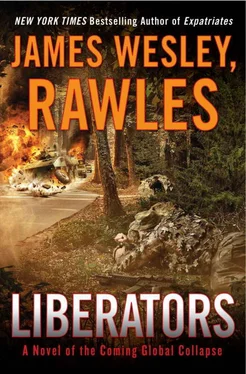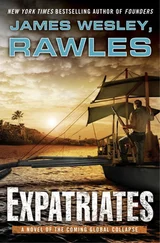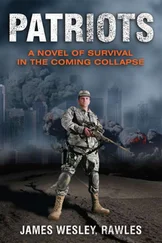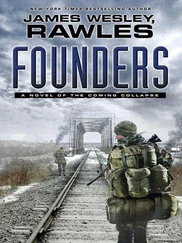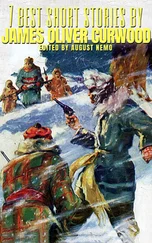It took Janelle three and a half days to hike thirty-three miles east to the Andy Cahoose Meadow Indian Reserve. The trail was in worse shape than she had remembered it, with a lot of newly downed timber. By prior arrangement, there was a resistance team summer grazing a herd of cattle and a string of packhorses and mules. When she arrived, Janelle met the First Nations husband and wife team, who were camped in a yurt. They saw her walking in and asked, “Are you Janelle?”
“That’s me!”
They wasted no time and soon had two horses saddled, and halters and leads on the rest of the string. While the husband stayed to watch the cattle, his wife, Maggie, would accompany Janelle back to the lake. In addition to their sleeping bags, they each carried an axe and a bow saw to deal with the worst of the downed timber.
With the each horse’s lead tied to the tail of the horse ahead, the pack string looked like a herd of elephants. It took them five grueling days to get back to the cold camp. While they could detour around a lot of the fallen trees, some of them were on steep, rocky, or brushy slopes and had to be cleared. By the time that they reached the camp, Janelle and Maggie were exhausted and ravenous, since they had packed only four days’ worth of food.
Rhiannon had been quite worried by Janelle’s long delay. Janelle assured her she was fine. “But that trail is a mess. We’d better plan on four days just to make it back to the meadows.”
Jake and Peter had already organized the loads equally alongside each packsaddle.
There were a couple of ornery mules in the string, but they had them all saddled and loaded within two hours. That afternoon they covered only eight miles before they camped at dark and hobbled the pack string. The next morning they were short one horse, and found that even though it was hobbled, a dappled gray gelding had covered four hundred yards in crow hops. “That’s the thing about horses; there’s not two of them with the same personality,” Rhiannon said.
The next three days were frustrating. Because of the downed timber, they had to break up the string and lead horses individually or in pairs on some stretches. But everyone remained in high spirits, and each night Maggie entertained them with stories of what had happened in the region since the Crunch. Maggie said that she had been a horse packer for the resistance but that she had never personally engaged in any combat. She had lost three toes to frostbite while resisting the French, and had lost her left earlobe to frostbite while resisting the Chinese.
Back at Andy Cahoose Meadow, they shared a barbecue with Maggie and her husband. Like Maggie, her husband knew of the McGregors only by reputation and had not heard any details of what had happened at the ranch since the Crunch. Since they wintered at the Michel Gardens Reserve (fifty miles east of Anahim Lake), they had news only of families in their immediate vicinity.
The next morning as they prepared to head out on the forty-five miles of trail to the McGregor ranch, Jake asked Maggie’s husband what he might need from their cargo. “I could use some aught six shells, some .303 shells, and some matches.” Jake filled all of his requests, with two hundred rounds of each type of ammunition, and four large boxes of matches. He also added the bonus of a twenty-dollar-face-value roll of Canadian silver quarters.
Maggie accompanied them the next morning on her Morgan mare. The plan was that once they reached the McGregor ranch, she would lead the pack string back to Andy Cahoose Meadow by herself.
The next two days went quickly. They were now on well-maintained trails, so the going was much easier. They spent the first night in the woods near the Blackwater Meadow Reserve. Maggie explained that from here on, it would be safer to camp where there were cattle pastured to confuse “those Chinese thermal things.” They spent the next night at the Louis Squinas ranch, which was technically a First Nations reserve, but to all outward appearances was just a typical British Columbia cattle ranch. One family lived there, but the ranch was currently unoccupied because the family was running their cattle for the summer up at a place they just called “Fourteen”—their summer pasture range.
Though they were now quite close to the McGregor ranch, they stayed an extra day; they were getting closer to civilization and needed to transition to night travel to decrease the chance of being spotted by Chinese drones or patrols.
Up until now, they had been riding with handguns on their hips, but with all of their guns stowed, they asked Maggie if it was wise to break them out. She said, “No. If they attack with a gunship, then we’re all dead anyway. And if a ground patrol spots us, we’re better off trying to outrun them and ride back into the timber. From there, we can set up an ambush.”
They left the long guns stowed.
Although it was only a mile to the town of Anahim Lake, and another seven miles to the McGregor ranch, it took them all night to get there. They had to take a circuitous route around the hamlet of Anahim Lake.
They arrived at the ranch at 5:00 A.M. and were greeted by an ambush.
Phil and Malorie were up and cooking breakfast when they heard “Alert zone three.”
“Get ready to thermite all of the files and maps!” Phil shouted. Then he and Malorie rushed out of the house and ran down the north draw to reach one of their planned ambush sites. Just as they got into position, the pack string came into the far end of the kill zone. Phil flipped down the bipod legs of his MAG, quickly positioned the Bulldog bag, and clipped on its belt to the gun’s twenty-round teaser.
When the strangers were in the middle of the kill zone, Malorie shouted, “Halt! Who goes there?”
Rhiannon, on the lead horse, sharply reined her mount to a stop. She hesitated, and then answered, “Rhiannon McGregor Jeffords, and a group of friendlies.”
It took a few minutes in the early light of dawn to straighten out who was who. Phil and Malorie quickly identified themselves as “friends of Ray” and residents of the ranch.
When they reached the house, Janelle and Rhiannon were crying tears of joy as they saw their brother, Ray, for the first time in more than a decade. Their happiness, however, was quickly shattered when they learned that their parents had been killed by the PLA.
Tears are the silent language of grief.
—Voltaire (François-Marie Arouet)
The McGregor Ranch, near Anahim Lake, British Columbia—August, the Eleventh Year
After all of the panniers were unloaded and the packsaddles were stowed in the barn, they turned out all of the horses in the east corral, which was partly shaded by trees. Here, they reasoned, there was less chance of a Chinese drone operator noticing the sudden influx of livestock.
Maggie stayed for the day. Before she left that evening, she was given a captured FAMAS F1, seven spare FAMAS magazines, five hundred rounds of 5.56mm ball ammo, a custom leather scabbard for the FAMAS that had been handmade at Stan Leaman’s ranch, a cleaning kit, and a copy of Malorie’s English translation of the French army FAMAS manual. They also gave her five of their packsaddles and their panniers, with the assumption that she would get more use out of them than the McGregors would.
“I’m glad that you got here when you did,” Ray began. “The PLA administrators have announced that they’re starting a nationwide census in less than two weeks. After that, any adult who is caught without an internal passport will be subject to arrest or perhaps even summary execution.”
Rhiannon had three passports: Canadian (lapsed), Australian, and U.S. Janelle had two passports: Canadian (lapsed), and United States Peter had Australian and U.S. passports. Jake had only a lapsed U.S. passport. They decided that Rhiannon and Janelle would queue up for the Chinese passports, while Jake and Peter would try to stay “under the radar.”
Читать дальше
